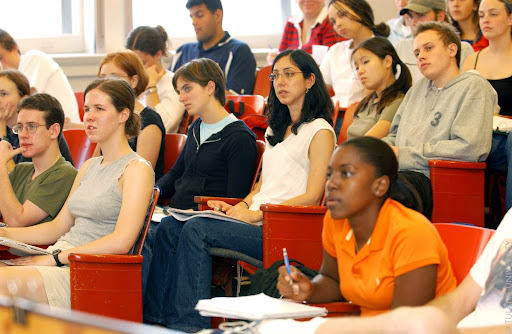Journalists and readers have lost accountability
News media isn’t what it used to be.
Once upon a time, citizens in the United States could flip on a television and find the always trustworthy news anchor Walter Cronkite behind a desk disseminating the day’s events. They could read articles by watchdog print reporters, like Bob Woodward and Carl Bernstein, who weren’t afraid to investigate the corrupt dealings of the nation’s most powerful people.
In a 1976 Gallup Poll, 72 percent of Americans had “a great deal or fair amount of trust in the media.”
People used to have faith in the news.
But a 2015 Gallup Poll shows that the opposite is true today. Only 40 percent of Americans now trust mass media.
What happened?
We now live in a different world. Unlike 40 years ago, virtually everyone has a smartphone in their pocket or bag.
This is the Information Age.
News media have tried to catch up, but Twitter journalism has its faults.
What once took over a day to package and ship to readers now takes seconds. While news media today has the capacity to keep everyone informed instantaneously, it has sacrificed some of its integrity.
Breaking news reports, such as the ones that recently came out of Paris, are full of rumors and speculation. The rush to report on hot-button issues can lead to confrontation, which happened during the recent student demonstrations at the University of Missouri.
Some journalists have gotten lazy, relying too much on social media for stories instead of venturing out into the world. And then there are the corporate, political and social influences that drive some organizations.
The media’s role in society has been eroding. The Guilfordian realizes it is not immune.
But there are two sides to this coin. Readers have lost some responsibility and accountability too.
There are no longer three major news stations across the country or a handful of well-read newspapers. Anyone with a blog or a social media account can be a journalist.
With such a wellspring of information, readers and viewers are likely to find some source that resonates with their interests. But this is dangerous.
If we only consume media from sources we agree with, that will only feed our confirmation biases.
Readers should get their information from a variety of news organizations, understanding who controls them and what worldviews they may have. And the articles and videos that they consume should always contain a variety of viewpoints. Otherwise they aren’t objective.
If you put in the effort, you’ll find there are still Cronkites, Woodwards and Bernsteins in journalism worth your trust. They are just buried in an ocean of new media voices.




